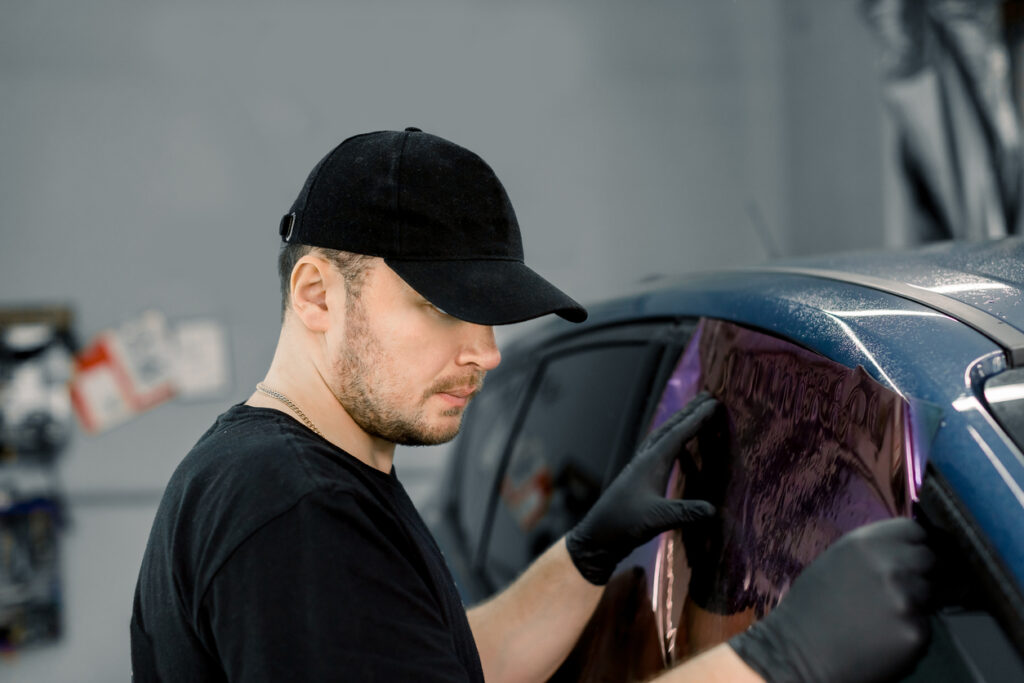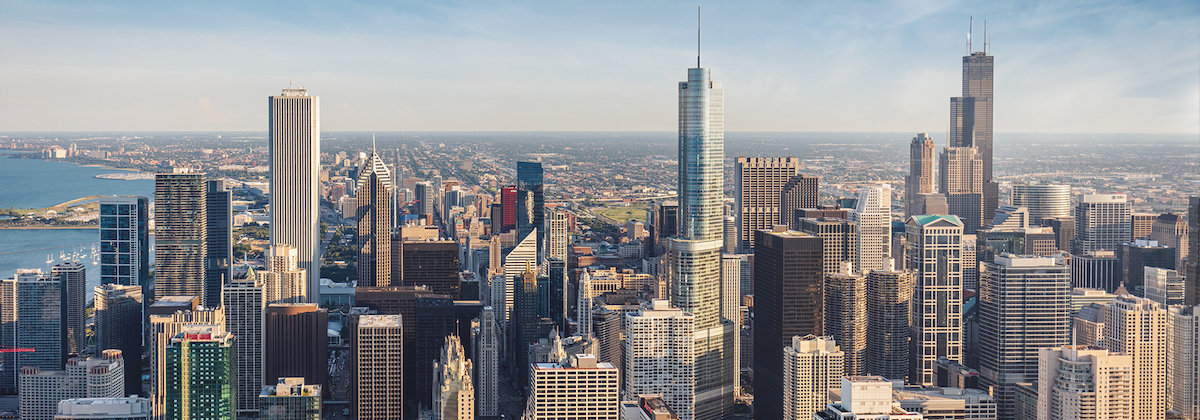Attorneys of Chicago | April 26, 2024 | Illinois Law

In Illinois, tinting the windows of your car is perfectly legal. However, there are certain laws concerning window tints. Therefore, before you invest in tinting, it’s important to familiarize yourself with these laws, as illegal window tints can result in serious consequences, like car accidents.
Car Window Tinting Laws in Illinois
Window tinting laws were first enacted in Illinois in 2009. These laws dictate how dark and reflective window tints can be and provide additional rules concerning tints.
Window Tint Darkness
Visible light transmission (VLT) refers to the amount of light a tint allows through the window. A lower percentage means a darker tint that allows less light in.
Car window tints for sedans are as follows:
- Windshield: Non-reflective tint permitted only at the top of the windshield — six inches at most
- Front Windows: Tints must allow more than 35% of light in
- Back Windows: Tints must allow more than 35% of light in
- Rear Window: Tints must allow more than 35% of light in
Rules for window tints on vans and SUVs involve the following stipulations:
- Windshield: Non-reflective tint permitted only at the top of the windshield — six inches at most
- Front Windows: Tints must allow more than 50% of light in
- Back Windows: Any percentage of tint is allowed
- Rear Window: Any percentage of tint is allowed
Additionally, all windows behind the driver can have any percentage of tint, but the front side windows must have no tint in that case. Drivers may also opt to have front side windows at 50% VLT as long as no window behind the driver is tinted less than 30%.
Window Tint Reflection
Window tints can also be reflective, as this helps reflect light and reduce heat and glare. However, Illinois window tint laws state that all windows on sedans, SUVs, and vans must be non-reflective. While the law does not define what non-reflective means, drivers should opt for tints that have no specific reflective features to ensure they are legal.
Additional Window Tint Rules and Regulations
Like most other states, Illinois window tinting laws provide further rules and regulations, including:
- Side Mirrors: If the back window is tinted, dual side mirrors are required
- Tint Variance: A 5% tint variance is allowed
- Restricted Colors: No specific tint colors are banned
- Stickers: Stickers do not need to be placed on vehicles to indicate that tints are legal
- Certificates: Tint manufacturers do not need to certify the film they sell in Illinois
- Medical Exceptions: No allowance for darker tints due to a medical need with proper proof from a medical provider
In addition, illegal tints can result in penalties. Having illegal tints is considered to be a petty offense, with fines ranging from $50 to $500. Second or subsequent violations are viewed as a class C misdemeanor with fines totaling $100 to $500.
Window Tinting and Car Accidents
Drivers must take special care to get acceptable, legal tints in Illinois. Not only can illegal tints result in steep fines, but they can also contribute to car accidents.
If you’re involved in a car crash and the responsible party’s vehicle has illegal tints, this could play a role in your collision claim. Having darker-than-legal tints can impair a driver’s vision, especially at night. When a driver doesn’t have a clear, unobstructed view, they can easily cause an unnecessary car accident.
Liability plays a substantial role in collision claims. An experienced car accident attorney can obtain evidence showing the other driver’s illegal tints to help create the link between the tints and the accident to establish fault. Successfully proving the other driver’s liability can get you one step closer to receiving favorable compensation.
Contact Our Chicago Personal Injury Law Firm For Help Today
If you’ve been injured in an accident in Chicago, Illinois, and need legal help, contact our experienced personal injury lawyers at Attorneys of Chicago Personal Injury Lawyers to schedule a free consultation today.
We proudly serve Cook County and its surrounding areas:
Attorneys of Chicago Personal Injury Lawyers
134 N La Salle St #2160
Chicago, IL 60602
Phone: (872) 324-4375
Hours: 24/7
To learn more about Attorneys of Chicago Personal Injury Lawyers, click here.
Our firm is located near you. We have an office in Chicago
Find us with our GeoCoordinates: 41.5486783,-87.8377085
